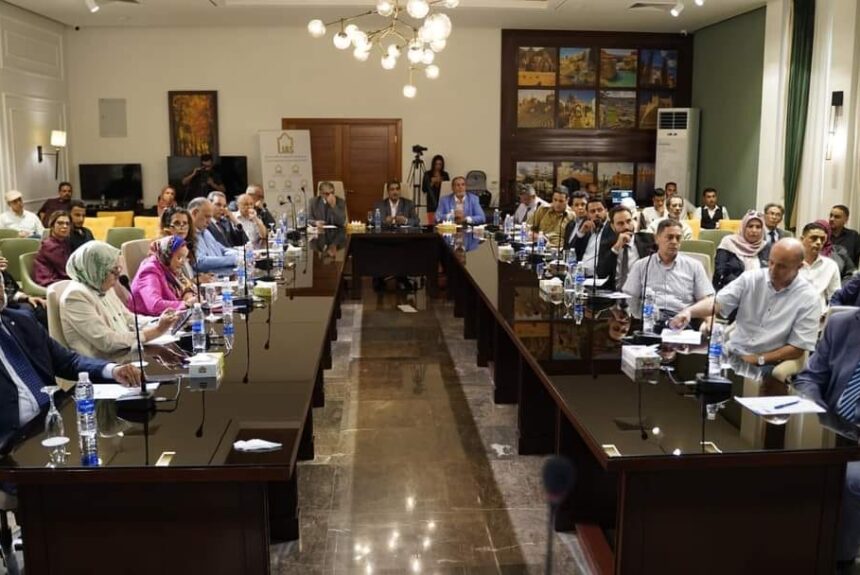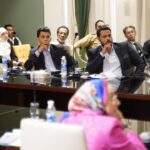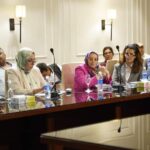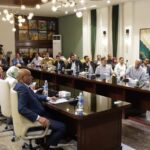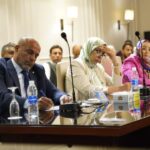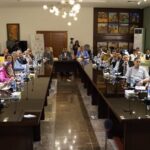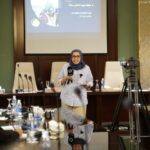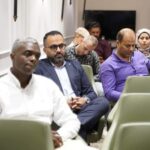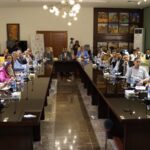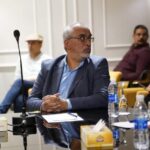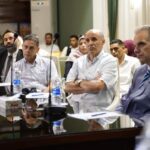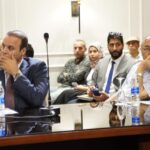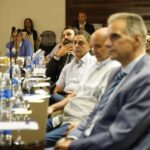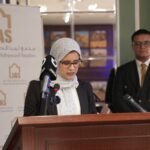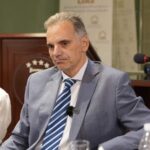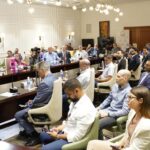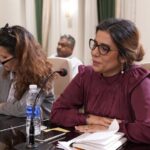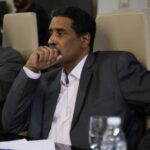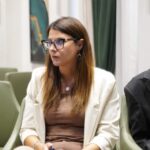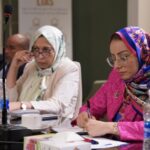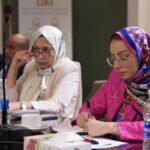Yesterday, Saturday, August 12, 2023, the Libya Institute for Advanced Studies organized a symposium entitled: Migrants between human suffering and security implications, in the hall of the Bernici Hotel, Benghazi.
I welcomed A. Enas Al-Falah, in attendance on behalf of the Libya Academy for Advanced Studies.
The symposium will be moderated by journalist Mohamed Shahat, presented by Dr. Reem Al-Barki, a researcher specializing in migration issues, who holds a doctorate in migration studies from the University of Perugia, Italy, will deliver her speech.
This symposium was attended by academic elite, security, political, and civil leaders, in addition to a delegation from the Italian and Greek consulates.
The symposium topics were as follows: Libya’s legal position internationally – the Libyan humanitarian position on the crisis – the European Union – Italy in particular – Libyan national security, detailing this with realistic examples and models, through the presentation of video clips and pre-prepared reports.
The attendees also participated in the panel discussion on the symposium, with their observations, including: that migrants do not want to reside in Libya but rather move to Europe, that the risks of migration are great for national security in Libya and the surrounding region, the interest of the General Command in the migration issue, and the importance of drawing inspiration from the Chinese-Russian experience in dealing with migration. The importance of introducing appropriate and modern laws, and the importance of collective action in this regard.
In addition to talking about the Libyan borders, how to protect them, and their procedures for treating migrants, Libya’s signing of the African Union migration agreements, and the European differences on migration issues, with the importance of considering, contemplating and working on the causes of migration.
It is necessary to focus on immigration as a purely security issue, which must be dealt with immediately, because the large number of immigrants in the country may cause many different and diverse problems, the most important of which is the dangerous demographic change that threatens Libya.
The Greek Consul’s intervention focused on the problems existing in Libya, the large number of migrants crossing through it, the necessity of combating jar networks, and the importance of discussing this and other issues frankly.
The Italian Consulate’s intervention revolves around the importance of dealing sensitively and gently with the issue of immigration, and the necessity of managing the migrant crisis, to combat immigration once and for all, which is a very complex matter, with the number of immigrants doubling daily.
Everyone stressed the importance of working on workshops and seminars concerned with all immigration issues, and moving on to training and qualifying those dealing with immigration and its issues so that they are knowledgeable, aware, aware, and capable of doing so.
Many thanks to Dr. Reem Al-Burki for this distinguished seminar.
We also thank everyone who responded to our invitation, including professors, academics, experts, security officials, media professionals, and local and international organizations. They have all our affection, appreciation, and greetings. We hope to communicate with them in future meetings, seminars, and workshops.


